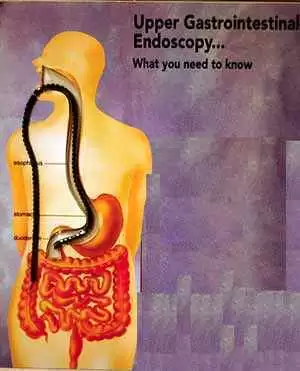Celiac.com 01/18/2012 - A number of small studies have shown a connection between celiac disease and various gastrointestinal (GI) cancers, but the results haven't been corroborated by larger studies, or by blood and biopsy analysis of large populations. That means that researchers just haven't been able to say with certainty what the results of those smaller studies might mean about cancer risks for the larger population.
 Recently, a clinical team set out to assess GI cancer risks for a larger population. The study team included Peter Elfström, Fredrik Granath, Weimin Ye, and Jonas F. Ludvigsson. They assessed risk GI cancers by using data from large groups of patients with either celiac disease, inflammation, or latent celiac disease.
Recently, a clinical team set out to assess GI cancer risks for a larger population. The study team included Peter Elfström, Fredrik Granath, Weimin Ye, and Jonas F. Ludvigsson. They assessed risk GI cancers by using data from large groups of patients with either celiac disease, inflammation, or latent celiac disease.
Celiac.com Sponsor (A12):
They assessed data from 28,882 patients with celiac disease, all with villous atrophy, and Marsh scores of 3. They also assessed data for 12,680 patients with inflammation, all with Marsh scores of 1–2. They evaluated biopsy samples at 28 different pathology centers.
They assessed a third group of 3705 patients with latent celiac disease, that is, with normal mucosa, but positive blood tests. The team then compared the results against data from an age- and sex-matched population.
They found that 372 of the patients with celiac disease developed incident GI cancers, while 347 patients with inflammation, and 38 with latent celiac disease developed GI cancers.
That means that the first year after diagnosis and initial biopsy, celiac disease carried a 5.95-times greater risk of incident GI cancer, with a 95% confidence interval [CI], 4.64–7.64). The hazard ratio
for inflammation was 9.13 (95% CI, 7.19–11.6) and for latent celiac disease was 8.10 (95% CI, 4.69–14.0).
After the first year, patients showed no significant increase in GI cancer risk.
The HR for celiac disease was 1.07 (95% CI, 0.93–1.23), for inflammation it was 1.16 (95% CI, 0.98–1.37). HR for latent celiac disease it was 0.96 (95% CI, 0.56–1.66).
The absolute risk for any GI cancer in people with celiac disease was 101/100,000 person-years, with an excess risk of 2/100,000 person-years.
The results carried some relatively good news. That is, even though celiac disease, inflammation, and latent disease all increase a person's risk for GI cancers in the first year after diagnosis, there is no increase in risk beyond the first year.
Source:
-
Open Original Shared Link









Recommended Comments
There are no comments to display.